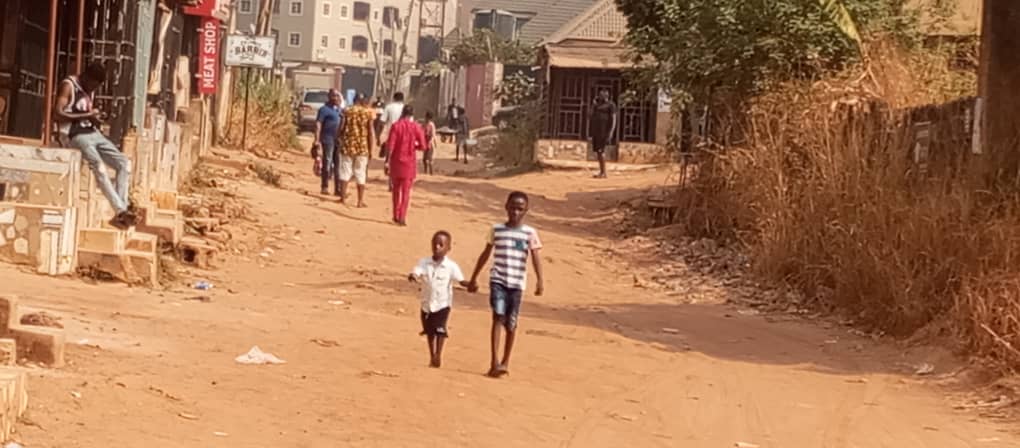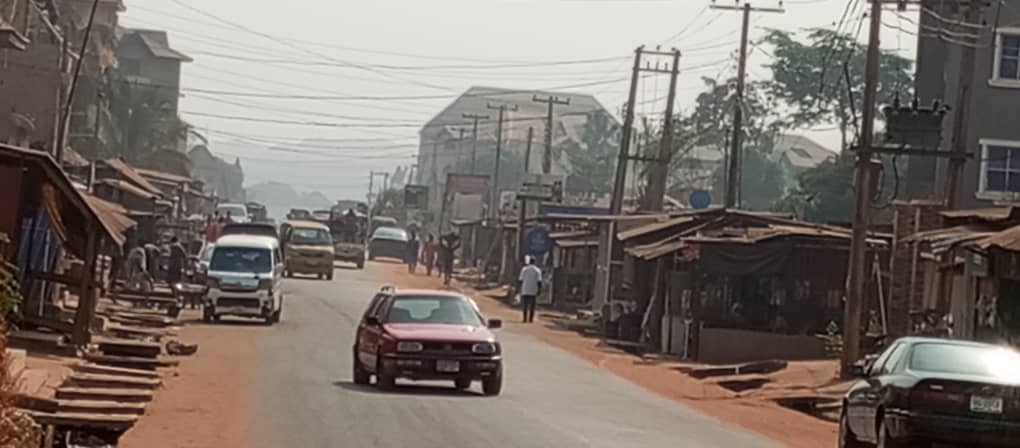Tuning In to a Sustainable Future: How Radio is Amplifying the Voice of a Planet in Peril
As we celebrate World Radio Day and highlight its crucial role in combating climate change, radio remains a vital source of information, education, and community engagement, especially for marginalized and vulnerable populations. As the world grapples with the climate crisis, radio’s reach and accessibility make it an essential tool for raising awareness, promoting sustainable practices, and mobilizing climate action. By leveraging radio’s power, we can inspire global solidarity, drive behavioral change, and work towards a more sustainable future for all.
In this special report by LightRay! Media, Precious Nwonu travels across parts of Nigeria to hear what Nigerians think about the power of Radio to inform the impact of climate change on Nigerians.
Every year on February 13th, the world celebrates World Radio Day, a day dedicated to recognizing the importance of radio in our daily lives. In 2025, the theme is “Radio and Climate Change,” highlighting the crucial role radio plays in spreading awareness about environmental issues.
Radio has been a powerful tool for communication for over a century, reaching people in the most remote areas and providing them with essential information. In the fight against climate change, radio remains one of the most accessible and reliable sources of information.
Climate change is one of the biggest challenges facing humanity today, causing extreme weather events, rising sea levels, and changing ecosystems. Many people, especially those in rural and underserved areas, rely on radio to stay informed about these changes and how they affect their lives.
According to an Investigative Journalist, the Executive Director of Lightray Media and Author of the book Distortion Lady Ejiro Umukoro while speaking on the World Radio day in her address said: “Radio is a vital tool in the fight against climate change, and with its wide reach and accessibility, radio can educate, inform people about climate change causes, effects and mitigation strategies. Radio can also provide critical information during climate related disasters, helping communities prepare and respond.”

Radio stations provide regular updates on weather conditions, natural disasters, and ways to reduce environmental harm. This helps communities prepare for emergencies and adapt to new climate realities. Obinna Nwafor, a business owner who lives in Abuja gives credit to the invaluable information he gleans from tuning in to radio regularly. “Hearing about climate change on the radio made me start using solar energy for my shop. Now, I spend less on electricity and help the environment too.” For Tolu, a civil Servant based in Ibadan, “Listening to climate programs made me realize the importance of recycling, so I now separate my waste properly.”
In relation to radio reaching out to remote communities and providing vital information to the people on climate change, Umukoro said this year theme has a crucial role to play as it would reflect on how important more climate information needs to be given to communities most especially remote areas. In her words: “Choosing the theme Radio and Climate Change plays a crucial role in addressing this issue frontally, because it’s now a global challenge. Radio’s ability to reach remote and vulnerable communities is one of its distinctive advantages to exploit.”
One of the greatest strengths of radio is its ability to reach people in their native languages, making climate information more understandable and relevant. Local radio stations work closely with environmental experts and community leaders to share practical advice on sustainable living.
Programs often discuss topics such as reducing waste, conserving water, and using clean energy sources. This encourages individuals and communities to take action in protecting the environment.
In addition to educating the public, radio also gives a voice to those affected by climate change. Farmers facing droughts, fishermen struggling with changing water levels, and communities threatened by deforestation can share their experiences through radio programs. Amina, a farmer in Kano State highlights the power of Radio on her trade. “Radio helps me know when to expect rain or dry weather. This helps me plan when to plant and harvest my crops so I don’t lose them to drought or flood.”

This in turn raises awareness of real-life climate struggles and pushes policymakers to take action. Radio journalists play a key role in holding governments and industries accountable for their environmental responsibilities.
In addition to Umukoro’s address on World Radio Day, she emphasizes that radio can help raise awareness about climate change and support mitigation efforts in several ways. It provides timely and accurate information, such as announcements about dam openings, which can help communities prepare for floods.
For example, in Nigeria, delayed warnings have led to severe flooding in places like Kogi, Abuja, Delta State including communities along the coastal regions. Radio can also host discussions with experts and policymakers, promote climate-resilient practices like sustainable agriculture, and support citizen journalism by allowing communities to share their climate experiences and solutions.
Radio as Powerful Tool For Climate Information
Although technology has transformed the world into a digital village, where many people prefer social media over traditional radio, radio still plays a vital role. Even with digitalization making radio accessible online, many people are not used to listening to it. However, there are still those who tune in regularly.

For lovers of radio who still tune in to listen to radio, when asked about the impact of climate change information from the radio, Emeka Mbonu, a student based in Enugu said “Radio programs taught me about climate change and how to reduce waste. Now, I recycle plastic bottles instead of throwing them away.”
Bala, a Keke Driver in Kaduna explained how “I heard on the radio that heat waves are becoming more common, so I always carry extra water or buy enough while on the road.”
Grace, a student who schools in Enugu State is a radio champion. “Radio taught me about how deforestation leads to erosion. Now, I tell people around me the importance of trees and how not to cut trees carelessly.”
Radio in Nigeria is a powerful tool for sharing climate information in different ways. One way is through news bulletins that provide weather updates, early warnings for floods, droughts, and other extreme weather conditions.
For example, when the Nigerian Meteorological Agency (NiMet) predicts heavy rainfall, radio stations like Radio Nigeria and Wazobia FM with regional stations across the six geopolitical zones in Nigeria during their broadcasts alerts or warn farmers, fishermen, and residents in flood-prone areas of upcoming climate outcomes.
These timely announcements help people take necessary precautions, such as moving to safer locations or reinforcing their homes.
Another way radio is used is through talk shows and expert discussions that focus on climate education and solutions. Programs like “Climate Talk” on Raypower FM invite environmental experts, policymakers, and local community leaders to discuss topics like climate change effects, sustainable farming, and renewable energy.
These discussions help listeners understand the long-term impact of climate change as well as learn learn practical ways to adapt, such as using drought-resistant crops or rainwater harvesting techniques. Fatima, an ardent radio listener, a student based in Abuja agrees. “Radio made me aware of climate change, and now I encourage my friends to plant trees and reduce waste.”

Radio also supports community engagement through storytelling and citizen journalism. Many stations allow listeners to call in and share their experiences with climate change, such as how flooding has affected their livelihoods or how they are adapting to changing weather patterns.
For instance, community radio stations in rural areas broadcast stories of local farmers who have switched to climate-smart agriculture, inspiring others to do the same. This interactive approach makes radio a crucial platform for spreading awareness and promoting climate resilience in Nigeria.
Statistical Data of Climate Change
Nigeria’s climate varies significantly across its regions, leading to diverse weather patterns and environmental challenges. According to the Nigerian Meteorological Agency (NiMet), the country’s mean annual temperature is approximately 26.9°C, with average monthly temperatures ranging between 24°C in December and January to 30°C in April. Rainfall distribution is uneven, with the southeastern coast receiving substantial rainfall from March to October, while the northern regions experience more variable rainfall, leading to occasional droughts and floods.
In recent years, Nigeria has faced significant climate-related events. For instance, in 2023, severe flooding affected various parts of the country, including Kano, Maiduguri, Lagos, and Ondo State, leading to widespread displacement and economic losses. The National Emergency Management Agency reported that more than 33,000 people were impacted by these floods.
To address these challenges, NiMet provides seasonal climate predictions, offering outlooks on rainfall and temperature patterns to aid in planning across sectors such as agriculture, water resources, and disaster management.
The National Bureau of Statistics (NBS) complements these efforts by offering detailed climate data through its National Data Archive (NADA) and Open Data Portal (ODP), which serve as valuable resources for researchers and policymakers aiming to understand and mitigate climate issues in Nigeria.
These combined efforts are crucial for developing effective strategies to manage and mitigate the impacts of climate change across Nigeria’s diverse regions.
As we celebrate World Radio Day 2025, it is important to recognize and support the role of radio in addressing climate change. Governments, media organizations, CSOs, NGOs and individuals must continue to invest in radio broadcasting, especially in vulnerable regions.
By using radio to spread knowledge and promote climate action, we can work together to protect our planet for future generations. Radio is not just a tool for entertainment; it is a lifeline for millions and a powerful force for change.





Comments